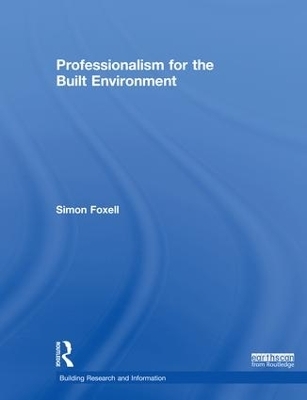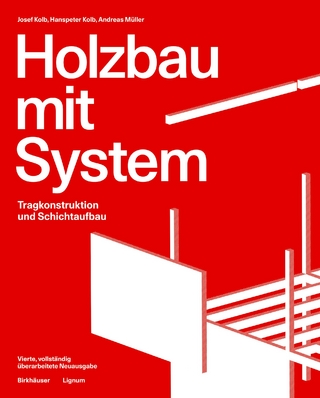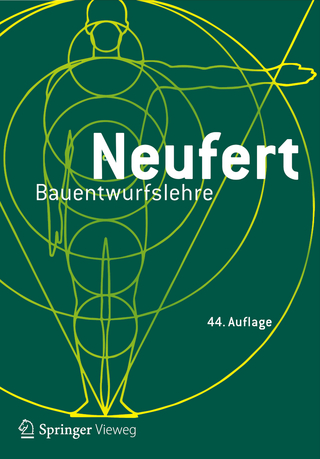
Professionalism for the Built Environment
Routledge (Verlag)
978-1-138-90020-2 (ISBN)
Simon Foxell outlines the history of professionalism in the sector, comparing and contrasting the development of the three major historic professions working in the construction industry: civil engineering, architecture and surveying. He examines how their systems have developed over time, up to the current period dominated by large professional services firms, and looks at some options for the future, whilst asking difficult questions about ethics, training, education, public trust and expectation from within and outside the industry.
The book concludes with a six-point plan to help, if not ensure, that the professions remain an effective and essential part of both society and the economy; a part that allows the system to operate smoothly and easily, but also fairly and to the benefit of all.
Essential reading for built environment professionals and students doing the professional studies elements of their training or in the process of applying for chartership or registration. The issues and lessons are applicable across all building professions.
Simon Foxell is Principal of The Architects Practice. He has designed buildings across the UK including houses, schools and offices and in 1996 was awarded the prestigious Benedictus Prize by the Union of International Architects. In recent years he has worked with schools and local authorities, designing new facilities and advising on development programmes. He was lead design adviser to Birmingham City Council’s Transforming Education programme from 2007 to 2010. He is a core member and co-ordinator of the Edge, the built environment think tank, and is on the Green Construction Board’s Routemap group. He is a former member of the RIBA Council and Board and was Chair of both Policy and Strategy and RIBA London region as well as Vice chair of Practice and Building Futures. He is a member of several Design Review panels including the Home Office’s, The London Borough of Islington and Shape East. He is an RIBA Client Adviser, member of the Academy of Urbanism and a former Board member of the European Forum for Architectural Policies.
1. Introduction
2. The beginnings of professionalism
Before professionalism (pre-1818)
The establishment of professional bodies
The early years of professionalism
3. The foundations of professional organisations
Association
Knowledge
Standards & ethics
The public interest
4. Mature professionalism
The post-war consensus
The end of deference
Formalisation of education
The impact of Thatcherism / neoliberalism
Globalism
The range of institutions
5. The wider picture
Ethics and responsibilities
Society and questions of trust
Value and values
Comparisons with professions in other sectors
International comparisons - Europe and beyond
6. The professional & professionalism
Integrity and impartiality
Trustworthy
Competence and currency
Responsibility
A duty of care to client/s
A duty of care to society and the environment
Reputation and standing
7. The role(s) of professional institutions
Membership and imprimatur
Professional services
Keeper of the flame and/or conscience of the profession
Learned society: Knowledge resources & development
Codes of conduct / ethics
Compliance / discipline
Education and training (including ongoing CPD)
Mutual support
Special interest groups
Collective forum and voice
Cultural activity
Social club / hub
Promotion & PR
Sectoral advancement
8. The workings of professional Institutes
Governance & status
Codes of ethics
Big tents vs specialist interest groups
Oversight of education & entry
Quasi-governmental and legal roles
Intellectual property
Conflicts of interest
The survival instinct
9. Recent developments in professionalism
Social change & expectations
Technological developments
Industry change and the relationship with the construction industry
Government policies & initiatives
Professional education and training
Professional individuals / Professional service companies
Celebrity & the media
Pros and cons of professional membership
Work across borders / internationalism
A decline in status / influence / relevance?
The environmental challenge (climate change, pollution, biodiversity, resource use etc.)
10. Significant current trends in the built environment sector
Multi-disciplinarity & diversity
Building Information Modelling (BIM)
Big data, aggregator websites, social networking etc.
Evidence based design
Performance based contracting
Zero/low carbon
Climate adaptation / Resilience
Corporate social responsibility
Retrofit / emphasis on existing building stock
11. The future
Future scenarios
Edge Commission of Inquiry
Agents for change
Professional institutions
Non-professional bodies & groups
Corporate professionalism
Professionals and professionalism
Professional education
Entry routes into the professions
New roles for professionalism
Alternatives to professionalism
New Professionalism
| Erscheinungsdatum | 29.09.2018 |
|---|---|
| Reihe/Serie | BRI Research Series |
| Zusatzinfo | 4 Tables, black and white; 12 Line drawings, black and white; 1 Halftones, black and white |
| Verlagsort | London |
| Sprache | englisch |
| Maße | 189 x 246 mm |
| Gewicht | 952 g |
| Themenwelt | Technik ► Architektur |
| Technik ► Bauwesen | |
| ISBN-10 | 1-138-90020-6 / 1138900206 |
| ISBN-13 | 978-1-138-90020-2 / 9781138900202 |
| Zustand | Neuware |
| Haben Sie eine Frage zum Produkt? |
aus dem Bereich


